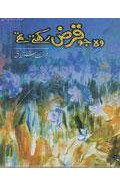Bahadur Shah Zafar Mughlia sultanat ka Akhri Tajda
By: ASLAM PARVEZ
-
Rs 420.00
- Rs 600.00
- 30%
You save Rs 180.00.
Due to constant currency fluctuation, prices are subject to change with or without notice.
An absorbing, authentic and exemplary chronicle – studded with rare nuggets of information and enthralling anecdotes – of one of the most tragic figures of history who was witness to the end of a glorious dynasty First published in Urdu in 1986, this ‘labour of love’ brings alive the life and poetry of Bahadur Shah Zafar (1775 to 1862), the last Mughal Emperor. Zafar presided over a crucial period in Indian history when the country was subjugated and became a colony of the fast-expanding British Empire. Aslam Parvez’s account – with its wealth of detail – stands out in the manner in which it weaves together the strands of the political, the personal, the cultural and the literary aspects of a bygone era. This work is as much about the 1857 Rebellion as it is about Bahadur Shah Zafar, the reluctant leader of the rebels. The pages also evoke the captivating ambience of a period when formidable poets such as Mirza Ghalib, Sheikh Muhammad Ibrahim Zauq and Momin Khan Momin, apart from Zafar himself, came up with one creative gem after another. The author also provides a vivid and fascinating picture of Delhi during the last days of its cultural and literary splendour as the Mughal capital and as a custodian of Urdu literature and poetry. Finally, he recounts, in a touching manner, how Zafar spent his last days in Rangoon (where he had been exiled by the British) – a lonely and forgotten individual – far away from his beloved Delhi and from the trappings of his empire.
An absorbing, authentic and exemplary chronicle – studded with rare nuggets of information and enthralling anecdotes – of one of the most tragic figures of history who was witness to the end of a glorious dynasty First published in Urdu in 1986, this ‘labour of love’ brings alive the life and poetry of Bahadur Shah Zafar (1775 to 1862), the last Mughal Emperor. Zafar presided over a crucial period in Indian history when the country was subjugated and became a colony of the fast-expanding British Empire. Aslam Parvez’s account – with its wealth of detail – stands out in the manner in which it weaves together the strands of the political, the personal, the cultural and the literary aspects of a bygone era. This work is as much about the 1857 Rebellion as it is about Bahadur Shah Zafar, the reluctant leader of the rebels. The pages also evoke the captivating ambience of a period when formidable poets such as Mirza Ghalib, Sheikh Muhammad Ibrahim Zauq and Momin Khan Momin, apart from Zafar himself, came up with one creative gem after another. The author also provides a vivid and fascinating picture of Delhi during the last days of its cultural and literary splendour as the Mughal capital and as a custodian of Urdu literature and poetry. Finally, he recounts, in a touching manner, how Zafar spent his last days in Rangoon (where he had been exiled by the British) – a lonely and forgotten individual – far away from his beloved Delhi and from the trappings of his empire.
Bahadur Shah Zafar Mughlia sultanat ka Akhri Tajda
By: ASLAM PARVEZ
Rs 420.00 Rs 600.00 Ex Tax :Rs 420.00
Zubin Mehta: A Musical Journey (An Authorized Biography)
By: VOID - Bakhtiar K. Dadabhoy
Rs 630.00 Rs 1,050.00 Ex Tax :Rs 630.00
The Power of Habit Why We Do What We Do and How to Change
By: Charles Duhigg
Rs 2,495.00 Ex Tax :Rs 2,495.00
The Power of Habit Why We Do What We Do and How to Change
By: Charles Duhigg
Rs 2,495.00 Ex Tax :Rs 2,495.00
No recently viewed books available at the moment.
Zubin Mehta: A Musical Journey (An Authorized Biography)
By: VOID - Bakhtiar K. Dadabhoy
Rs 630.00 Rs 1,050.00 Ex Tax :Rs 630.00
Bahadur Shah Zafar Mughlia sultanat ka Akhri Tajda
By: ASLAM PARVEZ
Rs 420.00 Rs 600.00 Ex Tax :Rs 420.00
The Power of Habit Why We Do What We Do and How to Change
By: Charles Duhigg
Rs 2,495.00 Ex Tax :Rs 2,495.00












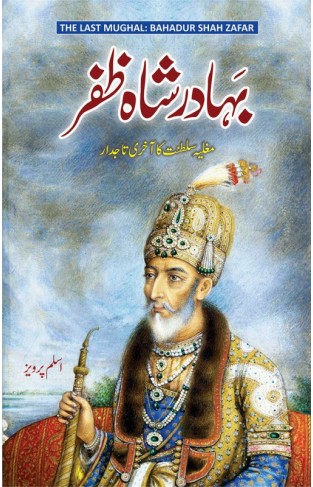
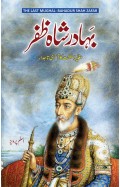
-120x187.jpg?q6)





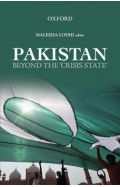

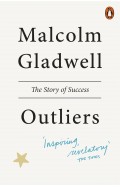
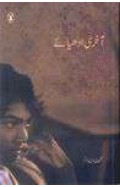

-120x187.jpg?q6)
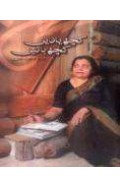
-120x187.jpg?q6)
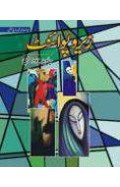
-120x187.jpg?q6)
-(Urdu)-120x187.jpg?q6)
